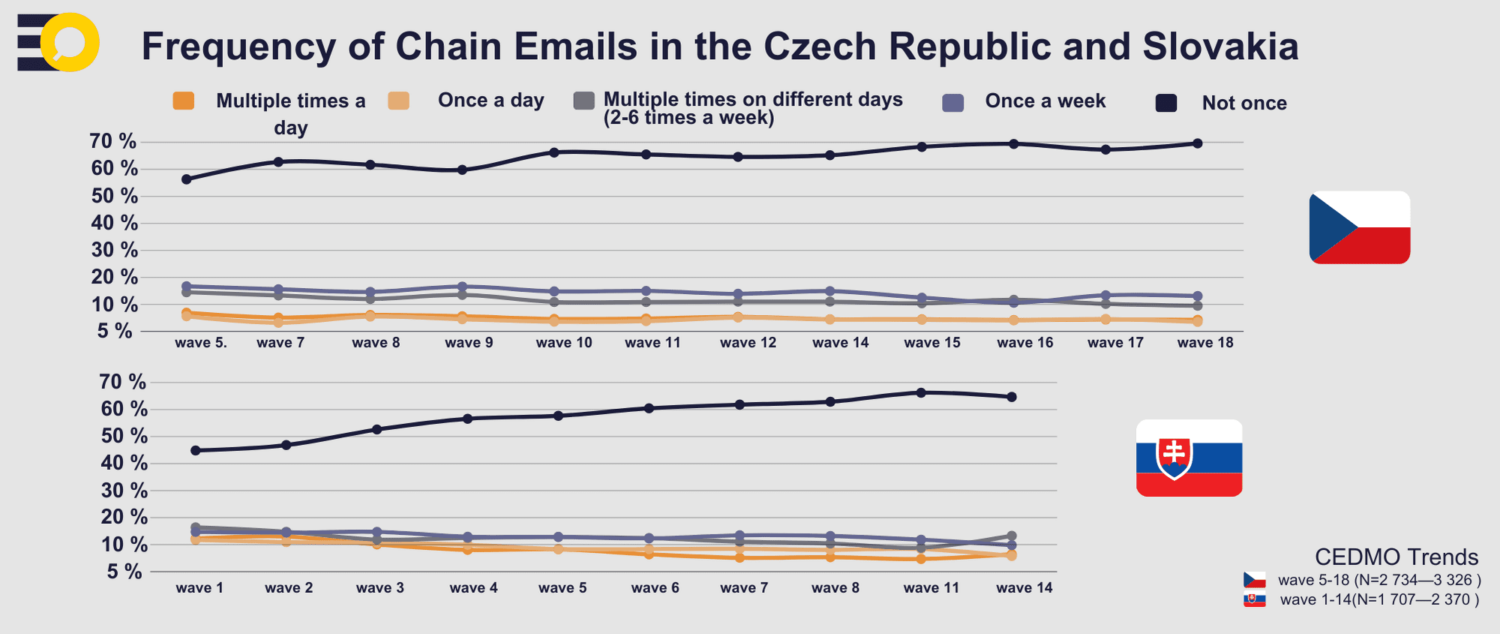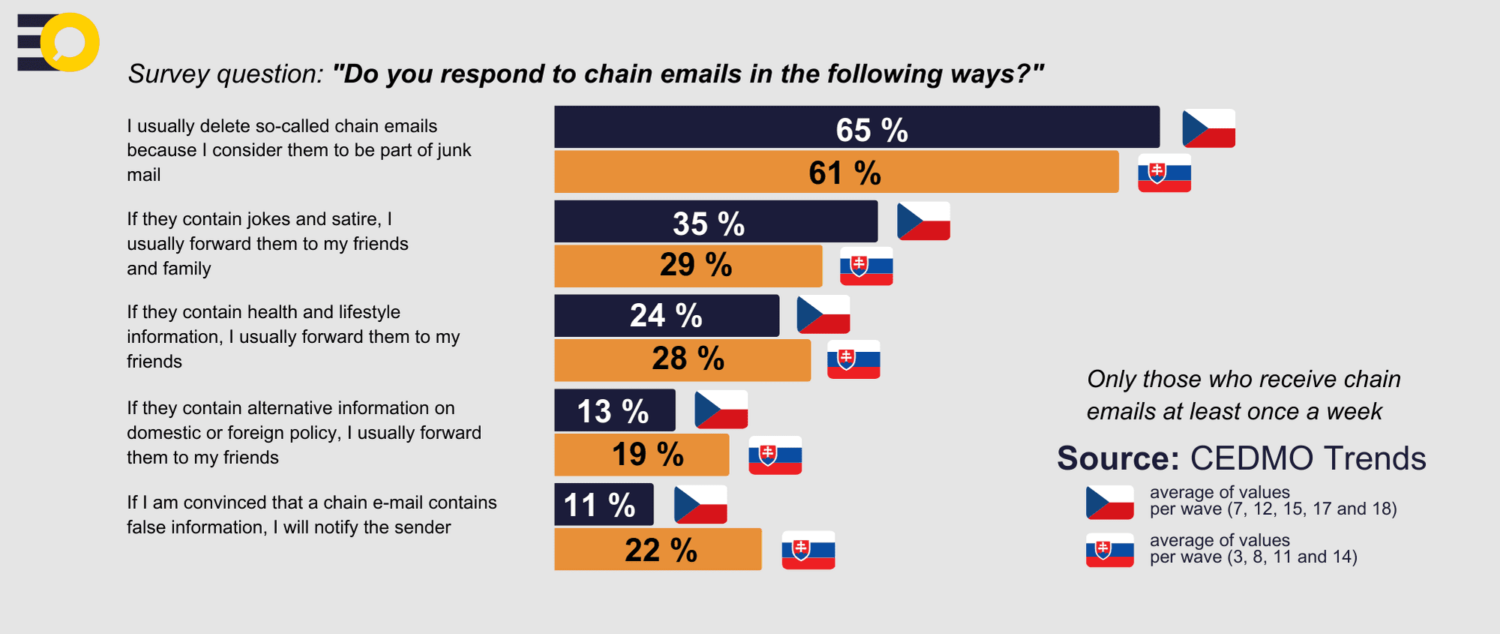Specifically, in the recently published October wave, 30% of Czechs and 35% of Slovaks reported receiving at least one chain email per week in the past month. Chain emails usually come from anonymous addresses. In the Czech Republic, the sender is unknown in almost half of the cases (48%), while in Slovakia, it is more than half (52%). However, this does not apply to the oldest age group (65 and older), who mostly report friends and acquaintances as the senders of chain emails.
Recipients in both countries usually delete chain emails, considering them spam (65% of Czechs and 61% of Slovaks). If the forwarded messages contain so-called alternative information on domestic or foreign politics, more than a tenth of Czechs (13%) and nearly a fifth of Slovaks (19%) forward the messages to their acquaintances. In Slovakia, young people aged 16-34 are the most likely to forward these political messages. In the Czech Republic, this young age group is second only to the oldest respondents (65 and older).
Senders of Chain Emails in the Czech Republic and Slovakia
“Recipients receive chain emails mostly from unknown anonymous addresses, in almost half of the cases (48%),” comments CEDMO data analyst Lukáš Kutil. “The second most common senders are friends and acquaintances, cited by 35% of respondents, followed by family members (8%) and colleagues (3%). Among respondents aged 65 and older, the share of anonymous emails is lower than in the general population. Only about a quarter (24%) of chain emails come from anonymous sources. Most often, people in this age group cite friends and acquaintances as senders (61%),” adds Kutil.
His colleague Ivan R. Cuker, who analyzes data for Slovakia within CEDMO Trends, adds: “The senders of chain emails circulating in Slovakia are also mostly anonymous. More than half of respondents (52%) report receiving these messages from unknown email addresses. The second most common senders are friends and acquaintances (19%). Family members account for 9% of cases, and colleagues for 6%. The remaining respondents, more than a tenth, could not recall the source of the chain emails.”
The majority of Czech respondents delete chain emails without further interaction. This is the response of 65% of those surveyed. If the emails contain jokes or satire, 35% of respondents forward them to other recipients. In the case of health or lifestyle information, nearly a quarter of users (24%) continue to share them. When respondents believe the email contains false information, only one in ten (11%) alerts the sender. About the same proportion of Czechs (13%) report that they usually forward emails containing alternative information on domestic or foreign politics to their acquaintances.
Similarly, in Slovakia, 61% of CEDMO Trends respondents confirm deleting chain emails, considering them spam. Nearly a third (29%) of survey participants usually forward information to their friends and acquaintances if it contains jokes or satire. Slightly fewer (28%) are motivated to forward emails containing health and lifestyle information. If respondents believe the email contains false information, one in five (22%) alerts the sender. In the case of emails containing alternative information on domestic or foreign politics, 19% of Slovaks usually forward the content.
Media outlets may republish this fact-check on their official website, provided they accept and comply with the Terms of Use of Home - CEDMO

![[FACT-CHECK] - Chain Emails: 30-55% of Czechs and Slovaks Receive at Least One Weekly, Mostly from Anonymous Senders](https://mediaconnect.com/wp-content/uploads/2024/12/rakosnicek_A_man_watching_his_computer_screen._On_the_screen__9f1c095e-4b27-4e03-b18a-661ed494d08d_3-thegem-blog-default.png)

